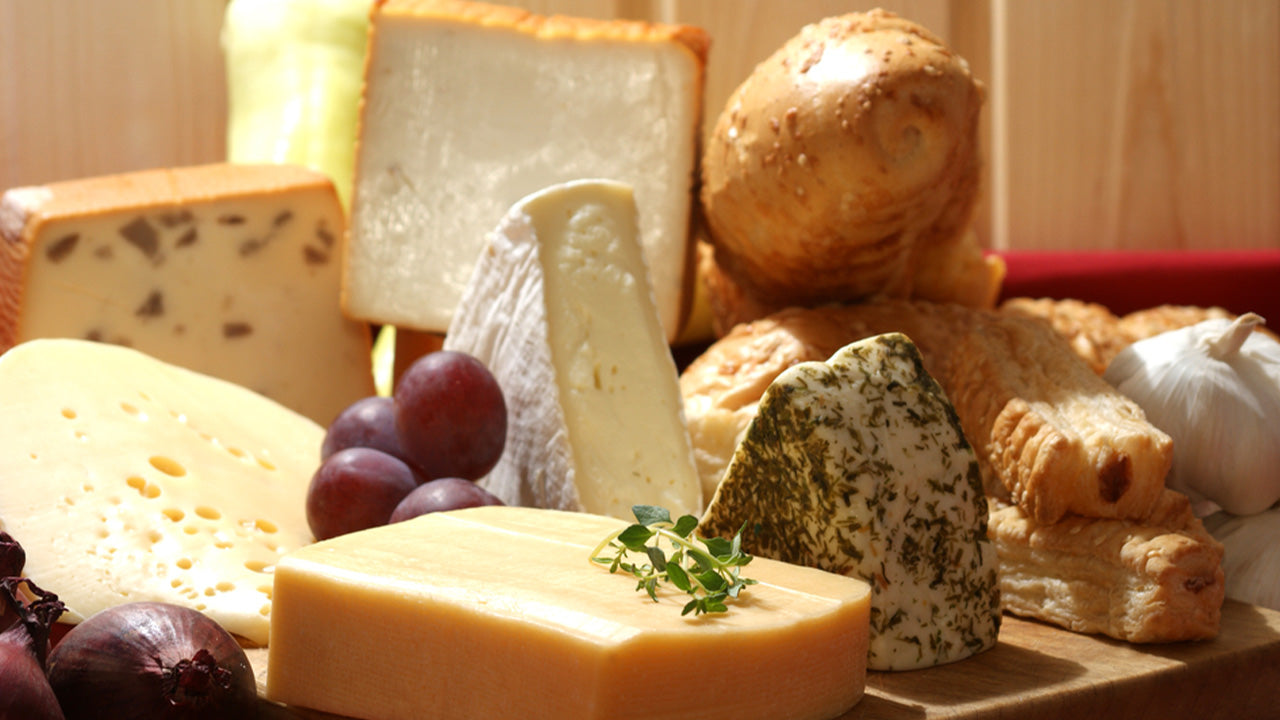Is Cheese a Complete Protein?
 By: by Amino Science
By: by Amino Science

Is cheese a complete protein, you ask? It is!
Cheese qualifies as a complete protein because it contains sufficient amounts of the 9 essential amino acids:
- Histidine
- Isoleucine
- Leucine
- Lysine
- Methionine
- Phenylalanine
- Threonine
- Tryptophan
- Valine
One cup of diced cheddar cheese (132 grams) contains 30.2 grams of protein and the following essential amino acid composition:
| Essential Amino Acid | Mg | RDI |
| Histidine | 76 mg | 103% |
| Isoleucine | 1592 mg | 114% |
| Leucine | 2559 mg | 94% |
| Lysine | 1353 mg | 64% |
| Methionine | 722 mg | 99% |
| Phenylalanine | 1418 mg | 162% |
| Threonine | 1378 mg | 131% |
| Tryptophan | 722 | 258% |
| Valine | 1853 mg | 102% |
As you can see from the table above, cheese goes above and beyond the recommended daily intake of most of the essential amino acids.
It’s worth mentioning, however, that it also contains 44 grams of fat, which accounts for 68% of the daily value. One cup of cheese may push you over the fat threshold if you’re not following a high-fat, low-carb diet such as the keto diet, so cheese is not necessarily the best high-protein food to eat in large quantities.

What’s So Important About the Essentials?
If you’re a protein pro, then you already know that 20 amino acids are the building blocks of the proteins that make up our tissues and cells. Of these 20, 9 are essential amino acids that the body cannot synthesize. We have to get these amino acids from our diet.
Cheese and other dairy products are terrific sources of protein because they are complete proteins containing the appropriate balance of the 9 essential amino acids. Other animal products such as meat and eggs are also complete proteins.
There are plant sources of protein, such as hemp seeds, chia seeds, quinoa, buckwheat, and soybeans (including edamame and tempeh), that are also complete proteins, however the amino acid profile of plant foods can’t quite match up to that of animal proteins.
Many vegetarians and vegans strive to eat a more balanced intake of essential amino acids (EAAs) by pairing together complementary proteins, such as whole grains, which are low in lysine but high in methionine, with legumes such as black beans or lentils that are high in lysine but low in methionine. In theory, two incomplete proteins like hummus (ground chickpeas) and pita bread...or whole grain bread and peanut butter...come together to form a complete protein. Unfortunately, the protein quality of these plant proteins are low.
That doesn't mean you shouldn't eat incomplete protein sources like whole wheat bread or pumpkin seeds. They help keep cholesterol in check, promote weight loss, are a healthy source of complex carbohydrates and essential fatty acids, and contain important minerals like calcium.
That also doesn’t mean you have to settle for not getting enough protein or becoming a meat eater. In addition to animal protein sources, you can get all the different amino acids your body needs by supplementing with an essential amino acid powder formulated with a full host of EAAs. These low-calorie, low-carb, and fat-free blends are formulated according to specific health needs, such as boosting heart health, liver health, and athletic performance, or accelerating healing.
You can shop our recommended line of essential amino acid supplements here.



 833-264-6620
833-264-6620


















